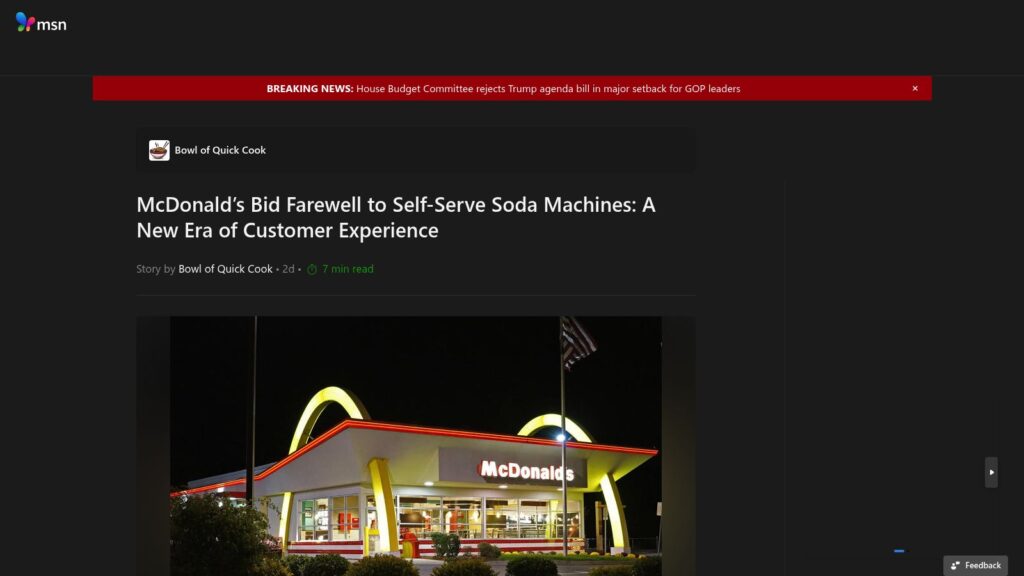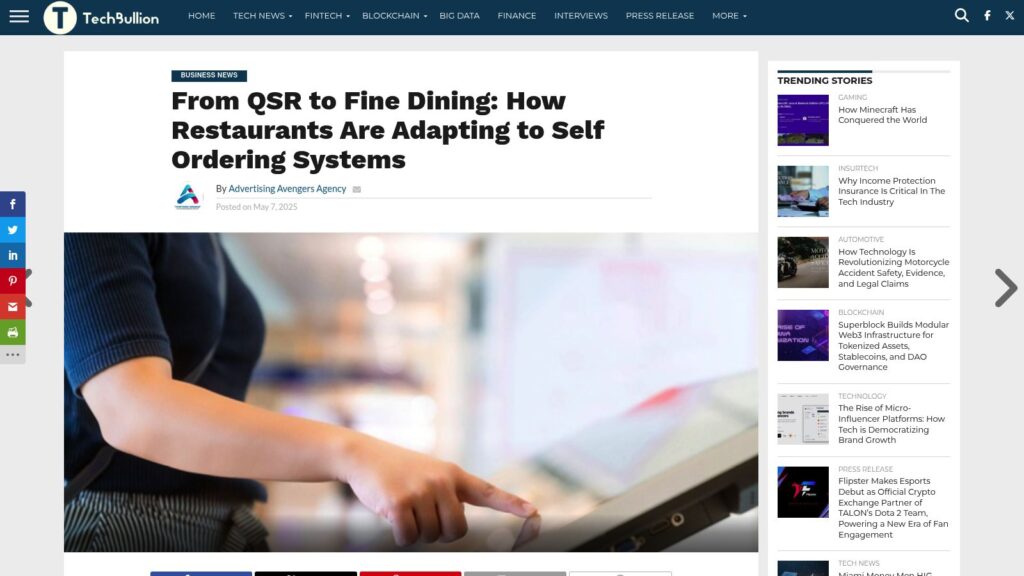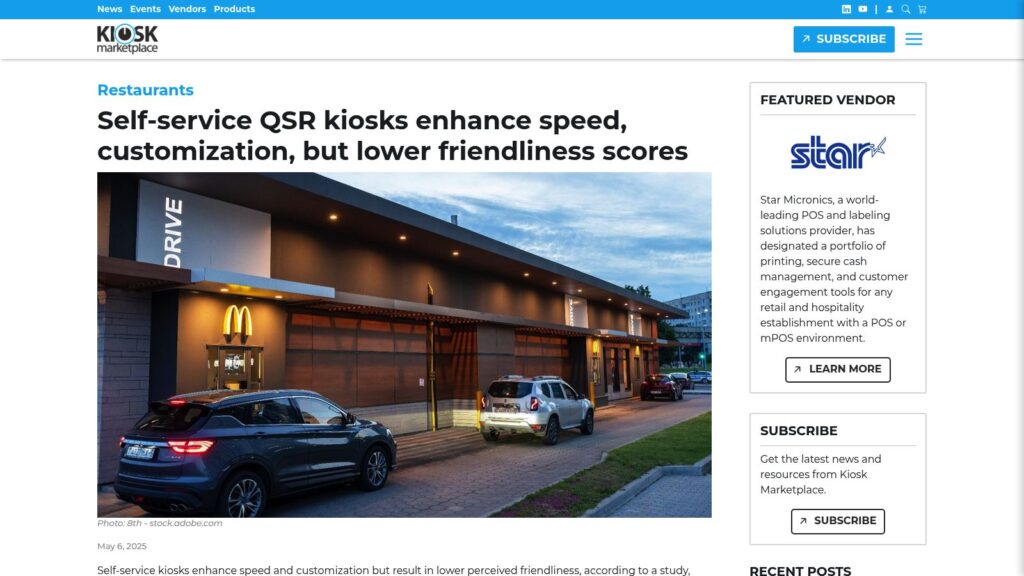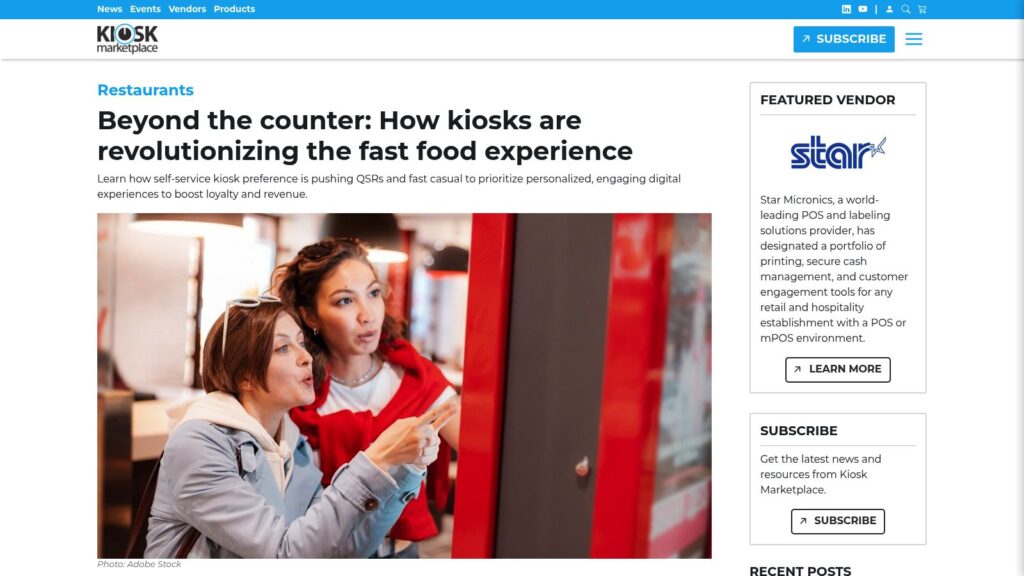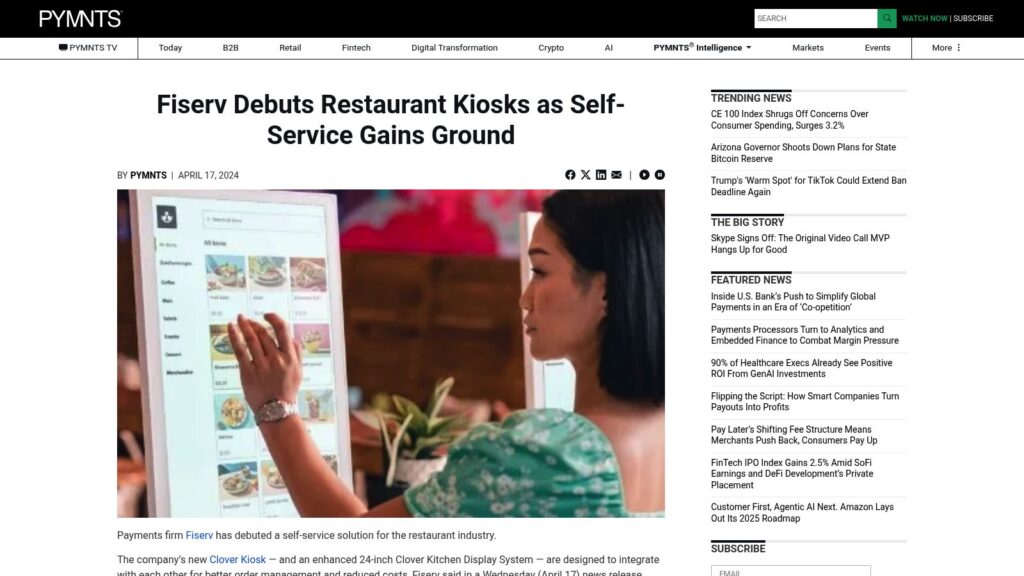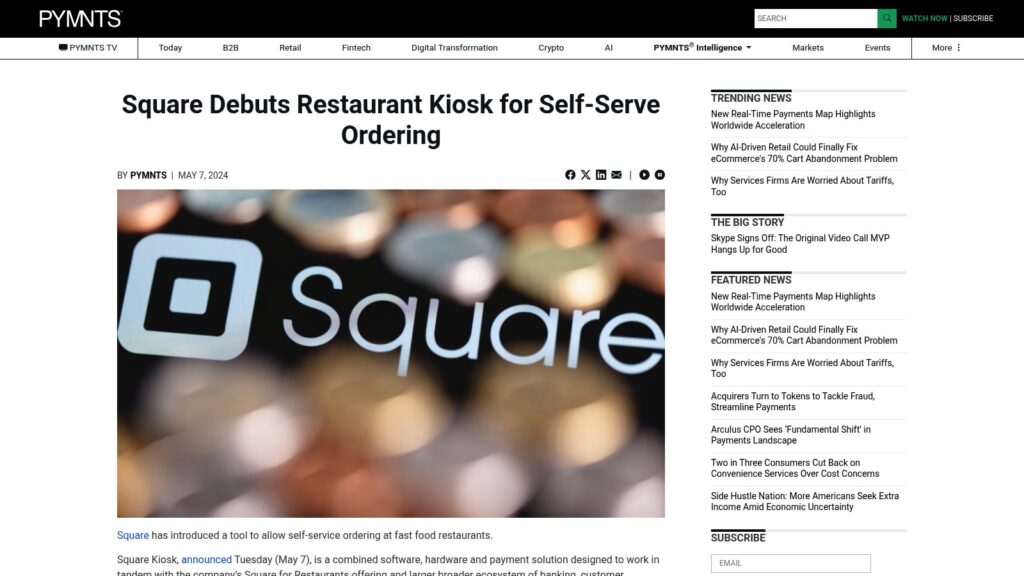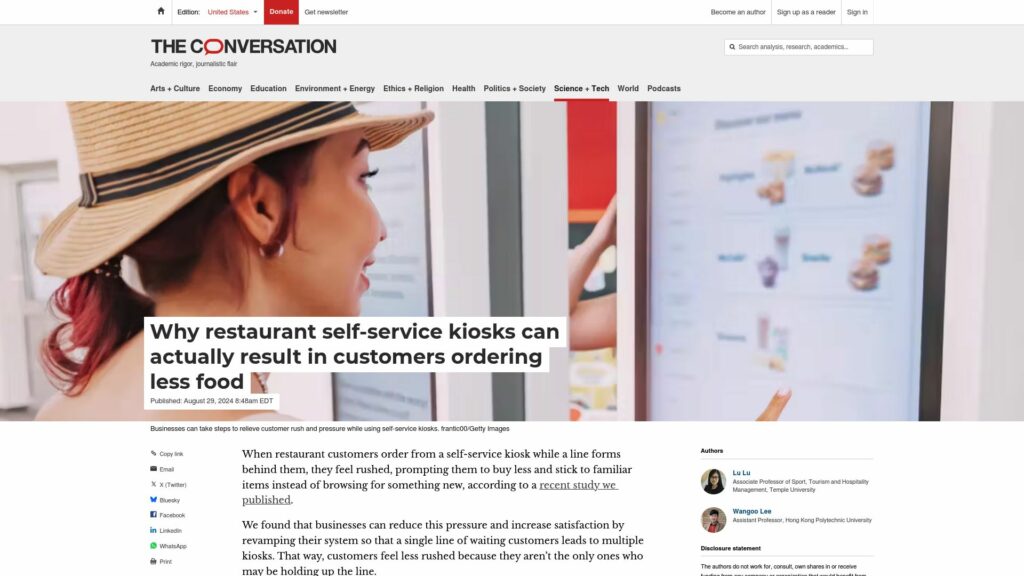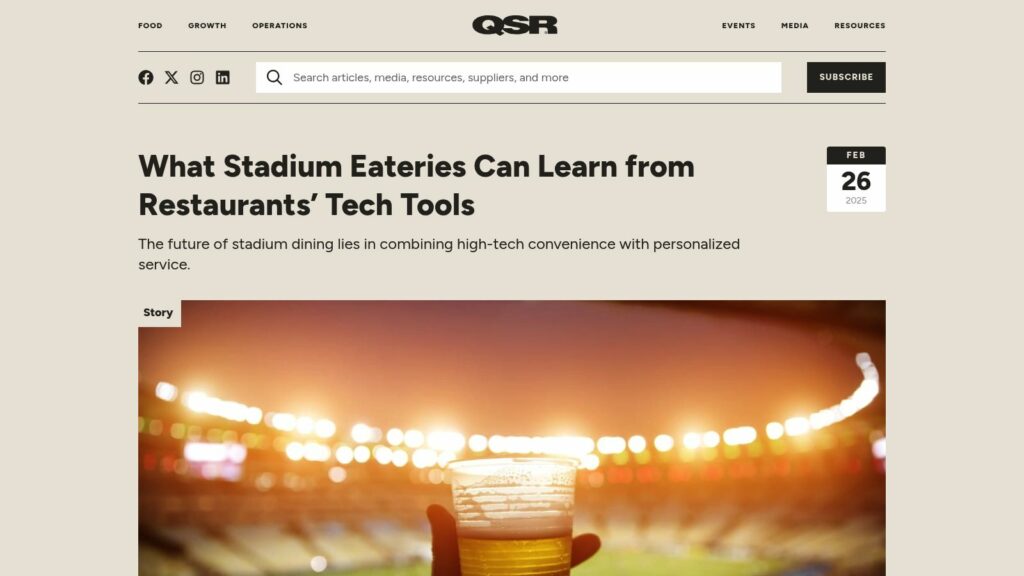self service
From QSR to Fine Dining: How Restaurants Are Adapting to Self Ordering Systems
Restaurants are evolving with self-ordering systems, moving from fast food to fine dining. Kiosks, tablets, and apps allow guests to independently place orders, enhancing accuracy and speed while addressing staffing shortages and customer demand for convenience. Fast food chains pioneered this trend, but now casual and fine dining venues also utilize technology to improve service without detracting from personal interactions. Though these systems offer many benefits, such as increased order accuracy and customer satisfaction, challenges include costs, maintenance, and ensuring accessibility for all patrons.
Self-service QSR Kiosks Enhance Speed, Customization, but Lower Friendliness Scores
Self-service kiosks improve speed and customization in QSRs but reduce perceived friendliness, according to an Intouch Insight study. Voice AI drive-thrus are faster and friendlier, though some orders still need human help. The study emphasizes blending efficiency with human connection for better customer experiences.
Beyond the Counter: How Kiosks Are Revolutionizing the Fast Food Experience
Kiosks are transforming the fast food industry, shifting from traditional counters to self-service options that enhance customer experience. The 2025 Phygital Index Report reveals 61% of diners prefer more kiosks, driven by demand for personalization and convenience. Kiosks not only facilitate ordering but also utilize loyalty systems to provide tailored suggestions, thereby increasing engagement and revenue. This technology is essential for QSRs and fast-casual restaurants to adapt to evolving consumer expectations and foster lasting loyalty through enhanced experiences.
Fiserv Debuts Restaurant Kiosks as Self-Service Gains Ground
Fiserv launched a new self-service restaurant solution, the Clover Kiosk, aimed at improving order management and reducing costs amidst rising self-service trends in the food industry. The initiative supports restaurant operators in adapting to efficiency challenges while enhancing customer experiences. With increasing labor shortages and costs, self-service solutions are becoming essential, although some customers still prefer human interaction over technology in dining settings.
Square Debuts Restaurant Kiosk For Self-Serve Ordering
Square has launched the Square Kiosk, a self-service ordering tool for fast food restaurants, integrating software, hardware, and payment solutions. This kiosk allows diners to customize orders directly sent to kitchens, reducing wait times and improving order accuracy, while helping restaurants manage rising labor costs. Research indicates strong consumer preference for self-service in quick-service settings compared to full-service restaurants.
Why Restaurant Self-service Kiosks Can Actually Result in Customers Ordering Less Food
Self-service kiosks can lead customers to order less food due to feeling rushed when a line forms behind them. A study suggests that creating a single line for multiple kiosks or messaging that delays are the business's responsibility can help reduce this pressure, potentially increasing customer satisfaction and spending.
Bite Named One of World’s Most Innovative Companies
Bite recognized as one of Fast Company's World's Most Innovative Companies, highlighting innovations enhancing restaurant kiosk experiences and customer loyalty through AI-driven personalization. CEO Brandon Barton emphasizes creating engaging, hospitality-driven kiosk interactions, fostering brand loyalty and boosting revenue.
https://www.qsrmagazine.com/news/bite-named-one-of-worlds-most-innovative-companies/
Samsung and GRUBBRR Promise Results or Clients Don’t Pay With New Guarantee Initiative
Samsung and GRUBBRR introduce the GRUBBRR Guarantee, ensuring clients receive ROI from self-ordering technology or their SaaS fees are waived. Customers must sign up by May 1, 2025, and share POS data weekly to activate the guarantee after the first three months. This initiative aims to reduce risks for businesses adopting new technology while enhancing operational efficiency and profitability.
What Stadium Eateries Can Learn From Restaurants’ Tech Tools
Stadium eateries can enhance fan experiences by adopting restaurant technology such as mobile ordering and self-service kiosks, aimed at reducing wait times and boosting satisfaction. Implementing these tools can streamline service, improve menu offerings, and leverage data analytics for better operational decisions. It's crucial to balance technological innovations with personal service, particularly in premium areas. Overall, integrating tech with a human touch can create memorable dining experiences for fans.
https://www.qsrmagazine.com/story/what-stadium-eateries-can-learn-from-restaurants-tech-tools/
